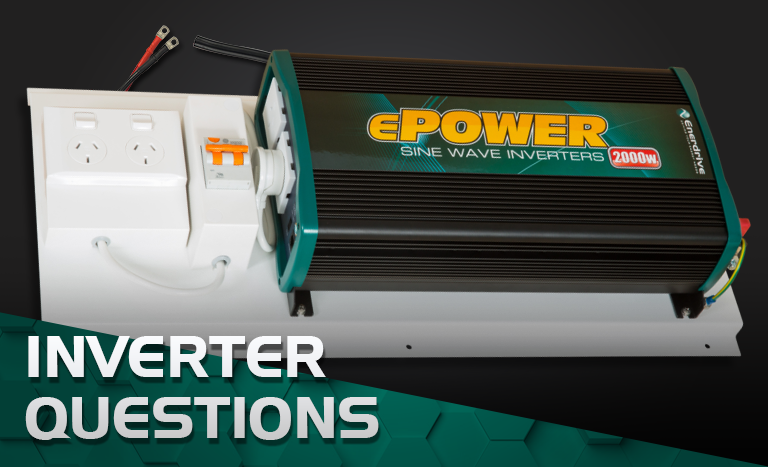A power inverter will drain a car battery quickly if the engine is off, typically within a few hours. The actual time depends on the battery’s capacity and the power draw of the inverter.
Understanding how fast a power inverter will deplete a battery is crucial for anyone relying on mobile or backup power sources. Power inverters convert DC power from a battery into AC power for standard electronics and appliances. The rate at which they drain a battery is contingent upon the inverter’s efficiency and the energy consumption of connected devices.
A small inverter running low-power devices may allow a battery to last for a good while, yet larger setups with high energy demands can exhaust a battery rapidly. Users must be aware of their energy requirements and plan accordingly to ensure they don’t get caught with a dead battery. Monitoring battery levels and managing energy usage carefully can prolong battery life and maintain a steady power supply.

Credit: leaptrend.com
Table of Contents
Introduction To Power Inverters And Battery Drain
Power inverters turn DC electricity into AC electricity.
They let you run household appliances from a car or boat battery.
This process can drain your battery quickly depending on the inverter’s power.
Battery capacity measures how much power a battery can hold.
It is shown in ampere-hours (Ah).
An inverter’s power draw tells us how much it takes from the battery.
Knowing this helps plan energy use and avoid getting stuck with a dead battery.
Our goal is to show how different inverters affect battery life.
We look at various inverters and what they power.
This helps you pick the best inverter and manage your battery’s life.

Credit: www.pinterest.com
Factors Affecting Battery Drain By Power Inverters
The efficiency of a power inverter can greatly affect how quickly a battery drains. An inverter with high efficiency will use less power, slowing down the battery drain. Batteries with large capacity will last longer than small ones. The discharge rates of the battery also play a key role.
Device wattage determines how much power is needed. High-wattage devices will drain the battery faster. The battery’s performance can change with the temperature. Batteries work best in moderate temperatures. Very hot or cold weather can make them drain faster.
Calculating Your Power Inverter’s Battery Drain
Knowing how fast a power inverter will drain your battery requires some math. First, calculate your battery’s total capacity in watt-hours (Wh). This is found by multiplying the battery voltage (V) by the ampere-hours (Ah). Then, divide this number by the wattage of the inverter.
For example, a 12V battery with a capacity of 100Ah has 1200Wh. With a 300W inverter, it would last roughly 4 hours (1200Wh/300W). Remember, this is without any other draw on the battery.
Practical calculations will vary based on the appliance you’re using. A laptop might require 50W, allowing your battery to last 24 hours. A small fridge can draw around 100W, giving you about 12 hours.
Utilizing tools like power meters can give real-time usage data. This helps in understanding the actual drain rather than estimated. With these tools, you can actively monitor the battery drain.

Credit: enerdrive.com.au
Maximizing Battery Life While Using Power Inverters
Understanding the rate at which a power inverter drains a battery is crucial. To maximize battery life, implementing best practices is essential. Maintaining your battery properly ensures extended usage and efficiency. Certain strategies reduce the overall load on your inverter.
Choosing the correct inverter and battery pairing tailors to specific energy requirements. Look for inverters with features designed to conserve battery power. These might include high-efficiency modes or low power alarms.
Reducing the load is another strategy to extend battery life. This includes only running necessary devices and disconnecting tools that are not in use. By doing so, battery depletion slows down significantly.
Understanding The Real-world Implications Of Inverter Usage
Power inverters can drastically vary in how much they drain a battery. It depends on several factors like the inverter’s efficiency, power load, and battery capacity. Specific industries face unique challenges.
| Industry | Impact of Inverter Drain | Mitigation Strategies |
|---|---|---|
| Automotive | Drain during idle periods can lead to breakdowns. | Using energy-efficient devices and regular battery checks. |
| Retail | Extended power outages risk product loss. | Implementing backup power systems. |
| Healthcare | Critical medical devices rely on steady power. | Investing in high-capacity batteries and reliable inverters. |
Users often share experiences on how to extend battery life. Tips like reducing unnecessary power usage and maintaining battery health are common. Technology advancements aim to increase inverter efficiency and decrease drain. Industry trends show a shift towards greener solutions and smarter energy management.
Conclusion
Understanding the rate at which a power inverter will deplete your battery hinges on various factors. These include the inverter’s size, the battery’s capacity, and the power load. For efficient energy management, matching your inverter with the correct battery and mindful usage is key.
Keep these aspects in check to ensure you’re never left powerless.

